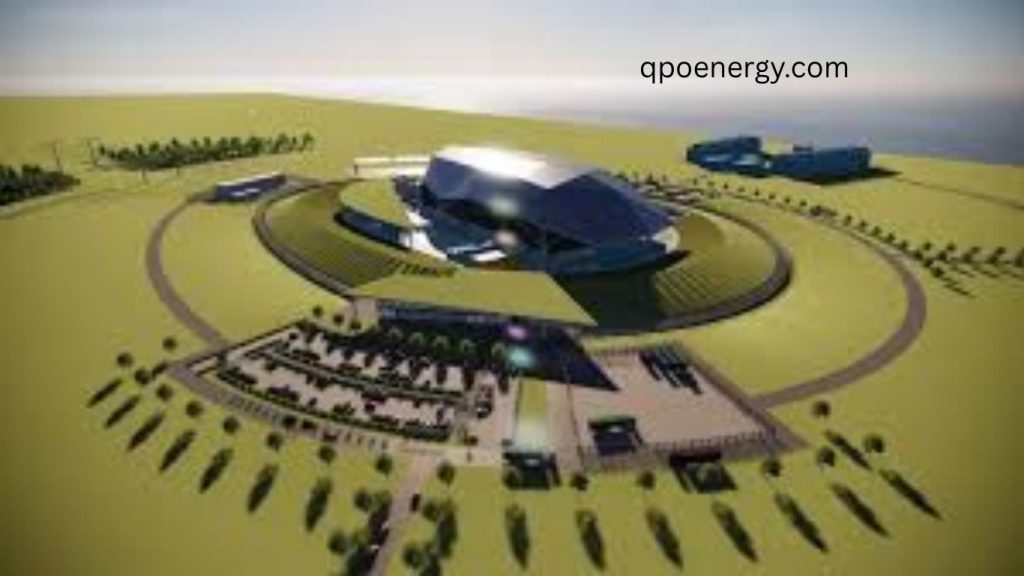The global energy landscape is undergoing a dramatic transformation as countries seek cleaner, more reliable, and more cost-effective power solutions. Among the technologies at the center of this shift are small modular reactors (SMRs), often referred to as the future of nuclear energy. In a bold move to accelerate their deployment, Siemens Energy and Rolls-Royce SMR have signed a partnership agreement that could reshape the nuclear industry for decades to come.
The collaboration is set to make Siemens Energy the exclusive supplier of key conventional technologies, including steam turbines, generators, and auxiliary systems, for Rolls-Royce SMR’s upcoming Generation III+ modular nuclear power plants. This partnership combines Siemens’ unmatched expertise in power island technologies with Rolls-Royce’s pioneering SMR design, positioning the two companies as global leaders in next-generation nuclear solutions.
Details of the Partnership
Under the agreement, Siemens Energy will provide critical non-nuclear components that ensure the efficiency and safety of the reactors. This includes advanced steam turbines, high-performance generators, and control systems designed to meet the rigorous demands of nuclear facilities. The final contract is expected to be completed by the end of 2025, laying the foundation for long-term cooperation.
For Rolls-Royce SMR, securing Siemens Energy as a technology partner is a major step forward. The company is developing a standardized, modular reactor that could significantly cut construction times and costs compared to traditional nuclear plants. By leveraging Siemens Energy’s proven equipment and global service capabilities, Rolls-Royce SMR gains a strong partner to deliver reliable and scalable solutions.
Why Small Modular Reactors Are a Game-Changer
SMRs are attracting global attention as governments and industries intensify efforts to decarbonize energy systems. Unlike traditional nuclear power plants that require massive upfront investments and decades-long construction periods, SMRs offer several distinct advantages:
- Compact Design: Smaller physical footprint, making them easier to deploy near urban or industrial areas.
- Enhanced Safety: Built-in passive safety systems reduce risks and simplify operations.
- Cost Efficiency: Standardized, factory-built modules lower construction costs and shorten timelines.
- Scalability: Units can be added incrementally to match growing energy demands.
- Clean Energy Contribution: Zero-carbon electricity production aligns with global climate targets.
Rolls-Royce SMR’s pressurized water reactors are designed to deliver up to 470 MW of electrical output, enough to power around 1.1 million households. This level of efficiency, combined with modular flexibility, makes SMRs an ideal complement to renewable energy sources like solar and wind.
Siemens Energy’s Legacy in Nuclear Solutions
Siemens Energy is no newcomer to the nuclear industry. For decades, the company has supplied components for the “power island” — the non-nuclear part of a nuclear power plant responsible for converting steam into electricity. Its portfolio includes steam turbines and generators ranging from 20 MW to 1,900 MW, as well as advanced control and automation systems.
By bringing this expertise to the Rolls-Royce SMR project, Siemens Energy ensures that the reactors will not only meet performance targets but also maintain the highest safety and reliability standards. With its global service network, Siemens Energy can also support operations, maintenance, and lifecycle management, giving Rolls-Royce SMR a competitive edge in international markets.
The Global Renaissance of Nuclear Energy
The Siemens-Rolls-Royce partnership comes at a time when nuclear power is experiencing what many experts call a “global renaissance.” As climate change concerns grow, more countries are revisiting nuclear energy as a low-carbon, stable, and reliable solution.
In Europe, the United Kingdom, France, and Finland are investing heavily in new nuclear technologies. In Asia, China and South Korea are expanding their reactor fleets. Meanwhile, the United States is exploring SMRs as a viable pathway to replace coal-fired plants and support grid stability.
Karim Amin, a member of Siemens Energy’s Executive Board, summarized the significance of this moment:
“We are currently experiencing a global renaissance of nuclear energy. Numerous countries are turning to nuclear technology to produce low-emission electricity, and small modular reactors will play a key role in this. Siemens Energy brings decades of experience in conventional equipment, while Rolls-Royce has the necessary implementation expertise. This perfect symbiosis enables us to jointly shape the future of energy supply.”
This statement highlights the growing recognition that nuclear power — and particularly SMRs — will be essential to achieving net-zero energy systems.
The Role of Rolls-Royce SMR
Rolls-Royce SMR, a division of Rolls-Royce Group, is spearheading one of the most ambitious nuclear projects in the UK. Its mission is to design and build a “mini nuclear power plant” that is faster to deploy, more flexible, and more affordable than traditional large-scale reactors.
By focusing on modular construction, Rolls-Royce SMR aims to cut project timelines dramatically. Instead of spending a decade or more on construction, SMRs could become operational within just a few years. This speed is crucial at a time when the world urgently needs to transition away from fossil fuels.
Rolls-Royce SMR’s collaboration with Siemens Energy further strengthens its ability to compete in international markets, where governments are seeking reliable partners to deliver advanced energy solutions.
Benefits for the UK and Global Markets
The Siemens-Rolls-Royce SMR partnership has broad implications:
Boost to UK’s Energy Security
The UK government has made nuclear energy a cornerstone of its net-zero strategy. Deploying SMRs could reduce reliance on imported fossil fuels and strengthen domestic energy security.
Export Opportunities
With Siemens Energy’s global presence, Rolls-Royce SMR technology can reach markets worldwide. Countries in Europe, Asia, and the Middle East are already exploring SMR adoption.
Job Creation and Economic Growth
Developing SMRs in the UK is expected to create thousands of skilled jobs and stimulate growth in advanced manufacturing and engineering sectors.
Decarbonization Acceleration
By delivering clean, reliable baseload power, SMRs complement intermittent renewables, ensuring stability in future energy grids.
Frequently Asked Questions:
What is the purpose of the Siemens Energy and Rolls-Royce SMR partnership?
The partnership aims to make Siemens Energy the exclusive supplier of turbines, generators, and auxiliary systems for Rolls-Royce’s small modular reactors, enhancing efficiency and accelerating clean energy adoption.
What makes small modular reactors (SMRs) revolutionary?
SMRs are compact, safer, cost-efficient, and faster to deploy compared to traditional nuclear plants. Rolls-Royce’s SMRs can generate up to 470 MW of power, supplying over 1.1 million homes.
Why is Siemens Energy’s involvement important?
Siemens Energy brings decades of expertise in conventional power island technologies, ensuring that Rolls-Royce SMRs operate with high reliability, performance, and safety standards.
How does this collaboration support global clean energy goals?
By delivering zero-carbon electricity and complementing renewable sources, the Siemens-Rolls-Royce partnership accelerates the global transition toward sustainable and net-zero energy systems.
When will the final contract between Siemens Energy and Rolls-Royce SMR be signed?
The final agreement, covering all technical and commercial details, is expected to be completed by the end of 2025.
What benefits will this partnership bring to the UK?
It strengthens UK energy security, creates skilled jobs, fosters economic growth, and positions the country as a global leader in advanced nuclear technology.
Can Rolls-Royce SMRs be exported to international markets?
Yes. With Siemens Energy’s global reach, Rolls-Royce SMRs are well-positioned for adoption in Europe, Asia, and beyond, where nations seek reliable clean energy solutions.
Conclusion
The alliance between Siemens Energy and Rolls-Royce SMR represents more than a business agreement — it is a bold step toward redefining the future of nuclear power. By combining Siemens’ unmatched expertise in turbines and power systems with Rolls-Royce’s pioneering SMR technology, this partnership promises cleaner, safer, and more cost-effective energy solutions for a rapidly changing world. As nations race to achieve net-zero targets and strengthen energy security, small modular reactors stand out as a practical, scalable, and sustainable solution. With the final contract expected by the end of 2025, Siemens Energy and Rolls-Royce SMR are positioning themselves at the forefront of the global nuclear renaissance, setting the stage for a more resilient and carbon-free energy future.


